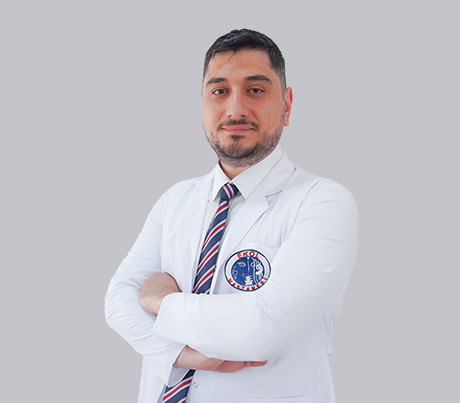The pancreas is an organ in our body that produces digestive enzymes and hormones. Pancreatic cancer is a type of cancer characterized by excessive and rapid growth and division of pancreatic cells.
Symptoms of pancreatic cancer may include abdominal pain, loss of appetite and jaundice. It is more common in men than women.
Risk factors for pancreatic cancer include age, smoking, family history and obesity. Therefore, people with these risk factors should have regular health checks.
Pancreatic cancer affects the pancreas, a gland in your abdomen that helps digestion. The most common symptoms of pancreatic cancer include nausea, bloating, fatigue, and loss of appetite. Pancreatic cancer is difficult to detect in the early stages. Treatment options include surgery, chemotherapy, and radiation therapy.
If you suspect pancreatic cancer, be aware that the signs and symptoms may be caused by pancreatic cancer or another underlying condition. It is best to consult a professional, or a surgeon for information.
In this article, we will mention the causes of pancreas cancer, and risk factors of pancreas cancer, and the types of pancreas cancer first. In the second part of the article, you can read about symptoms and early. detection of pancreas cancer and treatment options for pancreas cancer. In the last part of the article, we will talk about lifestyle changes and supportive measures for pancreas cancer.
Pancreatic cancer is a disease that everyone is at risk of developing at some point in their life. What causes pancreatic cancer is not fully understood. As with all types of cancer, there are some risk factors. Some of these risk factors can be lined up as below:
Pancreas cancer cases have increased in recent years. Pancreatic cancer is the 10th most common cancer in men and the 8th most common cancer in women. Modern and unhealthy lifestyles are considered the main factors in this increase. You can not prevent pancreas cancer easily, but choosing a healthier lifestyle reduces your risk of getting it.
Two types of tumors cause pancreatic cancer:
We know that early detection of pancreatic cancer and early diagnosis are vital but unfortunately, early-stage pancreatic tumors are not seen on imaging tests. Therefore, it is difficult to diagnose until the cancer has spread and become metastatic. Pancreatic cancer can start without showing symptoms or be very difficult to detect. Some of the symptoms of pancreas cancer can be lined up as below:
If you have some of these symptoms and are not sure what to do, visit a local hospital or health care center as soon as possible.
Treatment for pancreas cancer is different for each case and depends on the patient’s condition. Some important factors that are determining the treatment can be lined up as below:
There are different types of treatment for pancreas cancer Some of them can be lined up as below:
There are treatments under the heading of supportive care that can help you improve pancreatic cancer symptoms such as pain and fatigue.
Coping with cancer is a difficult task. Supportive care is important at that stage. Every cancer treatment has possible side effects and these can cause both physical and psychological changes in every single person. Staging of cancer is one of the main factors for treatment. Since the situation of each patient is different, the same result may not be obtained even if the same treatment is carried out. For this reason, cancer treatment should be considered as a long and diverse process.
Talking to your doctor about the course of your health is an effective form of motivation. They will want to know if the treatments have any side effects and offer new solutions accordingly. Additionally, you can receive palliative care, if your medical expert considers it necessary.
 Date of birth 10.11.1987 Education and Expertise Karadeniz Technical University Faculty of Medicine Kocatepe University Ankara University Faculty of Medicine Konya Health Sciences University Professional Interests: Obesity (fatness) surgery and metabolic surgery Laparoscopic reflux surgery Laparoscopic gallbladder surgeries Gastric balloon application ERCP, EMR, ESD (Advanced Endoscopic procedures) Laparoscopic pancreatic cancer surgery Laparoscopic gastric and intestinal cancer surgeries Hemorrhoid surgeries Perianal fistula surgeries Laparoscopic abdominal and inguinal hernia surgeries Oncoplastic Breast cancer surgeries Natural cancer surgery (NOSE) Thyroid cancer and goiter surgeries. Memberships to Scientific Organizations Turkish Surgery Association Turkish Obesity Surgery Association Surgical Oncology Association National Society of Endoscopic Laparoscopic Surgery He is a member of the Bariatric and Metabolic Surgery Association. Courses and Certificates: Turkish surgical association proficiency exam (Board) certificate of achievement in 2018 He has more than 100 papers presented in national and international congresses and more than 50 articles published in international journals. Foreign language English
Date of birth 10.11.1987 Education and Expertise Karadeniz Technical University Faculty of Medicine Kocatepe University Ankara University Faculty of Medicine Konya Health Sciences University Professional Interests: Obesity (fatness) surgery and metabolic surgery Laparoscopic reflux surgery Laparoscopic gallbladder surgeries Gastric balloon application ERCP, EMR, ESD (Advanced Endoscopic procedures) Laparoscopic pancreatic cancer surgery Laparoscopic gastric and intestinal cancer surgeries Hemorrhoid surgeries Perianal fistula surgeries Laparoscopic abdominal and inguinal hernia surgeries Oncoplastic Breast cancer surgeries Natural cancer surgery (NOSE) Thyroid cancer and goiter surgeries. Memberships to Scientific Organizations Turkish Surgery Association Turkish Obesity Surgery Association Surgical Oncology Association National Society of Endoscopic Laparoscopic Surgery He is a member of the Bariatric and Metabolic Surgery Association. Courses and Certificates: Turkish surgical association proficiency exam (Board) certificate of achievement in 2018 He has more than 100 papers presented in national and international congresses and more than 50 articles published in international journals. Foreign language English